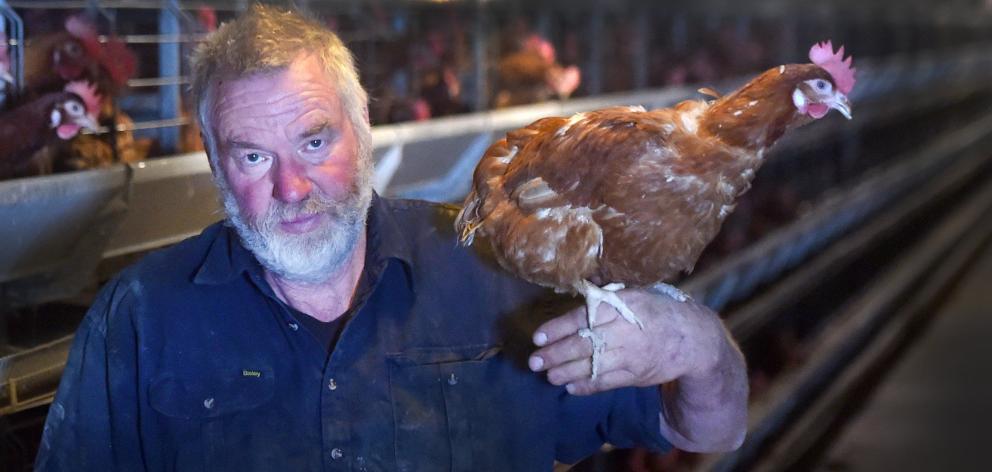A Dunedin poultry farmer may be forced to cull thousands of birds by the end of the year because of impending restrictions.
If given a few more months to comply with the new welfare standards, Pieter Bloem said the flock and his business could be saved.
He was trying to rehome as many hens as possible, but still had about 2500 to go.
The situation was "heartbreaking", he said.
He had been trying to upgrade Bloem Farm to meet the new requirements since 2018, but Covid-19, international production problems and business politics meant his new cages could not arrive on time.
The problem had been ongoing, but he was finally given the delivery date of December 6, which did not leave him enough time to convert to the new system.
Unable to meet the new welfare codes in time, he was required by law to get rid of all his hens by the first day of the new year.
He was hopeful they could all find new homes, but it was unlikely, he said.
"Every time I enter the chicken shed I get a knot in my stomach."
He approached another local farmer and managed to sell about 1000 young hens, but that was not an option for the whole flock, he said.
The changes in regulation go back to 2012, when the Government introduced a new code of welfare for laying hens.
It gave operators 10 years to upgrade their battery cage farms to the colony, barn or free range methods.

However, now it was too late and Mr Bloem had little hope the Government would grant him an extension.
He still planned to apply for one, but the messaging had been "very clear" that extensions would not be given.
"I don’t think this Government is sympathetic to farming at all."
Even if he did commit to still converting the farm it would take about two years to get back up to speed with a new flock, he said.
He saw the situation as "forced retirement".
He had spent about 50 years working at the Bloem Farm, which he took over from his parents.
The farm also produced pork, but similar issues were plaguing that industry as well, he said.
Ministry of Primary Industries (MPI) animal welfare national manager Gray Harrison said it could not grant extensions to farmers, but it did have discretion on how it responded to a breach of the regulation while taking animal welfare responsibilities into consideration.
That discretion had been applied in one case which "allowed a significant number of healthy birds not to be culled unnecessarily."
Operators were advised to put a formal case to MPI if Covid-19 had affected their ability to transition.












